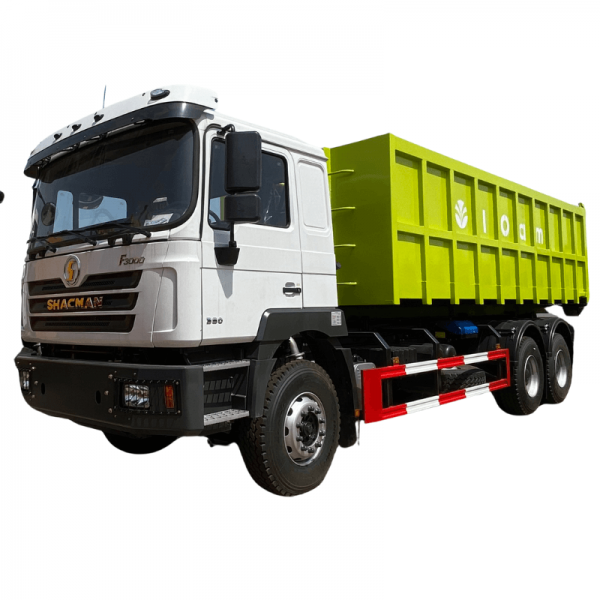Introduction
Garbage compactor trucks play a crucial role in waste management systems by collecting and compacting waste from various sources. These specialized vehicles are essential for maintaining cleanliness in urban areas and ensuring proper disposal of waste materials. To ensure the efficient operation and longevity of garbage compactor trucks, regular maintenance is key. In this comprehensive guide, we will discuss the importance of garbage compactor truck maintenance and provide detailed insights into the best practices for keeping these vehicles in optimal condition.

Chapter 1: Understanding Garbage Compactor Trucks
Before delving into maintenance practices, it is essential to have a basic understanding of garbage compactor trucks. These trucks are equipped with a hydraulic compactor system that compresses waste materials to maximize the truck's carrying capacity. There are various types of garbage compactor trucks, including rear-loading, front-loading, and side-loading models, each designed for specific waste collection needs.
Chapter 2: Importance of Regular Maintenance
Regular maintenance is crucial for the efficient operation of garbage compactor trucks. Neglecting maintenance can lead to breakdowns, increased repair costs, and downtime, impacting waste collection schedules and overall productivity. By implementing a proactive maintenance schedule, operators can prevent costly repairs, extend the lifespan of their vehicles, and ensure smooth operations.
Chapter 3: Components of a Garbage Compactor Truck
To effectively maintain a garbage compactor truck, it is essential to understand its key components. These include the compactor body, hydraulic system, electrical system, controls, chassis, and safety features. Each component plays a vital role in the functionality of the truck and requires specific maintenance procedures to ensure optimal performance.
Chapter 4: Maintenance Checklist for Garbage Compactor Trucks
Creating a comprehensive maintenance checklist is essential for keeping garbage compactor trucks in top condition. The checklist should include daily, weekly, monthly, and annual maintenance tasks to address various aspects of the vehicle. Some common maintenance tasks include checking hydraulic fluid levels, inspecting hydraulic hoses for leaks, greasing pivot points, inspecting tires, and testing safety features.
Chapter 5: Hydraulic System Maintenance
The hydraulic system is a critical component of garbage compactor trucks responsible for powering the compaction mechanism. Proper maintenance of the hydraulic system is essential to prevent malfunctions and ensure smooth operation. Tasks such as checking hydraulic fluid levels, inspecting hoses and fittings for leaks, and maintaining proper hydraulic pressure are crucial for the longevity of the system.
Chapter 6: Electrical System Maintenance
The electrical system of a garbage compactor truck controls various components, including lights, warning signals, and the compaction mechanism. Regular inspection of the electrical system is necessary to detect any issues early on and prevent electrical failures. Tasks such as checking wiring harnesses, inspecting battery connections, and testing electrical components should be included in the maintenance checklist.
Truck mounted crane inspection : Chassis Maintenance
The chassis of a garbage compactor truck provides structural support and houses the engine, transmission, and other mechanical components. Regular maintenance of the chassis is essential to ensure the overall stability and safety of the vehicle. Tasks such as inspecting the frame for cracks, checking suspension components, and lubricating moving parts are crucial for chassis maintenance.
Chapter 8: Safety Features Maintenance
Garbage compactor trucks are equipped with various safety features to protect operators and pedestrians during waste collection operations. Maintaining these safety features is essential to prevent accidents and ensure compliance with safety regulations. Tasks such as inspecting backup alarms, testing emergency stop buttons, and checking safety interlocks should be included in the maintenance routine.
Chapter 9: Troubleshooting Common Issues
Despite regular maintenance, garbage compactor trucks may experience occasional issues that require troubleshooting. Common problems such as hydraulic leaks, electrical malfunctions, and compaction system failures can disrupt operations if not addressed promptly. By following a systematic troubleshooting process, operators can identify and resolve issues efficiently to minimize downtime.
Chapter 10: Professional Maintenance Services
While regular maintenance can be performed in-house by trained personnel, professional maintenance services are also essential for ensuring the longevity of garbage compactor trucks. Contracting with reputable maintenance providers can offer additional expertise, specialized tools, and access to genuine replacement parts, enhancing the overall maintenance program.
Conclusion
Garbage compactor trucks are indispensable assets in waste management systems, and proper maintenance is essential for maximizing their efficiency and lifespan. By following a proactive maintenance schedule, operators can prevent breakdowns, reduce repair costs, and ensure the seamless operation of these specialized vehicles. This comprehensive guide serves as a valuable resource for understanding the importance of garbage compactor truck maintenance and implementing best practices to keep these vehicles in optimal condition.
